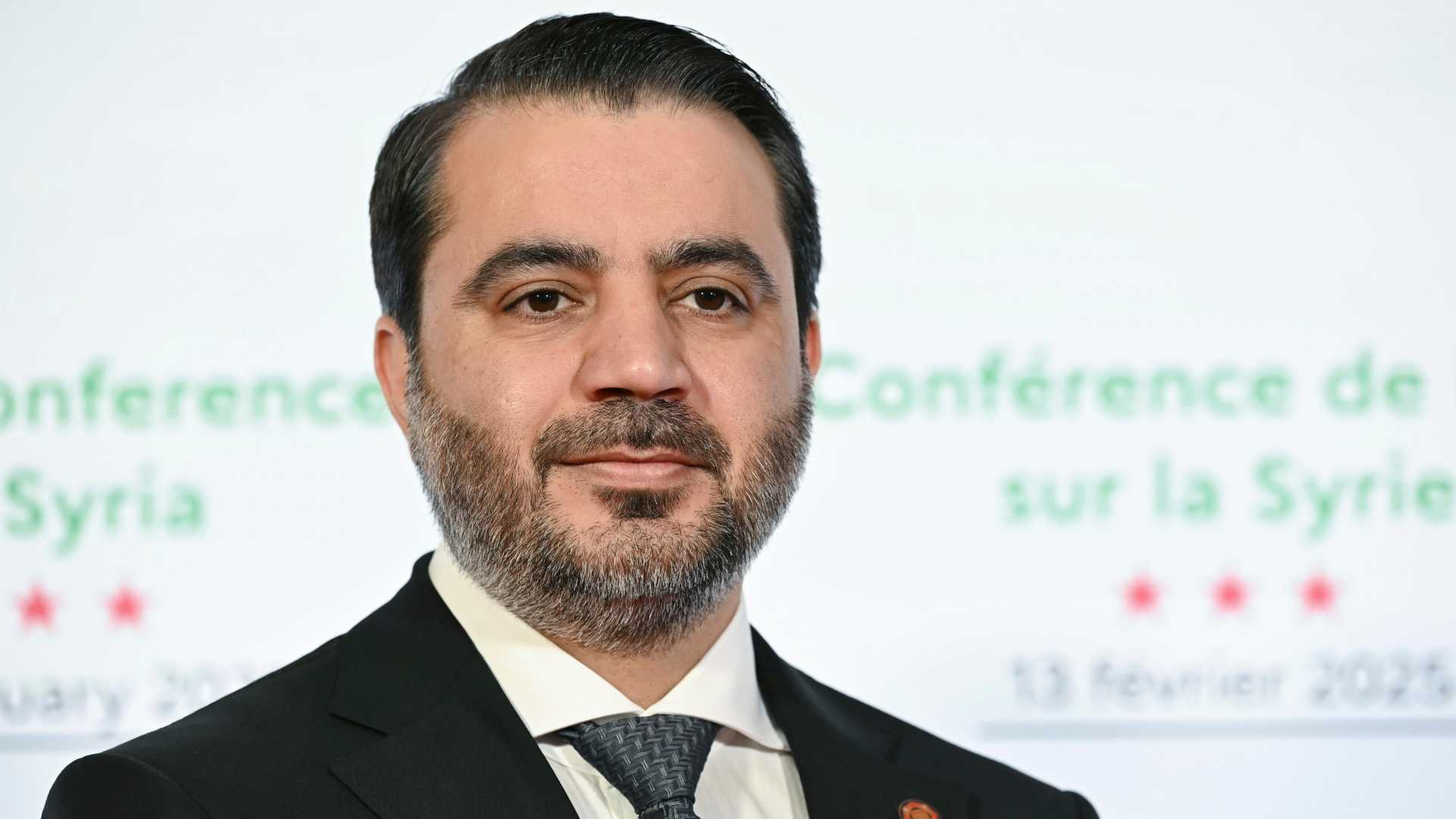World
Syria’s New Foreign Minister Addresses UN Amid Sanctions Discussion

New York, NY – Syrian Foreign Minister Asaad al-Shibani attended a United Nations Security Council briefing on Friday after raising the new flag of Syria at the UN headquarters. This is the first public appearance of a senior Syrian official since the fall of President Bashar Assad during a swift offensive by rebels in December.
Al-Shibani joined a delegation from the new Damascus government that traveled to the United States this week, seeking relief from the harsh sanctions imposed by the U.S. and its allies following Assad’s brutal crackdown on anti-government protests in 2011, which escalated into a civil war.
In his remarks to the Security Council, al-Shibani stated, “The brutal policies of that era deepened divisions, forcing entire families to emigrate, leaving their hopes and dreams reduced to ashes. However, I am here today to represent that new Syria.”
His arrival signals a surprising new chapter for a war-torn country that has spent much of the last few decades isolated and marginalized. The changing emblem was evident outside the UN, as al-Shibani watched the three-star flag, previously used by opposition groups, replace Assad’s two-star flag as the official symbol of the country.
Al-Shibani emphasized, “This flag is not just a symbol; it is a proclamation of a new existence… that embodies a future emerging from resilience and a promise of change after years of pain.”
Members of the Security Council welcomed the new interim minister, noting that his attendance is a “positive step” towards a more prosperous Syria. However, many countries and UN officials cautioned that significant work remains to heal the country’s wounds.
Said Geir Pedersen, the UN special envoy for Syria, “Syria has moved from a provisional government to a new, expanded, and more diverse cabinet. This is an improvement over what came before. However, it is still not a fully inclusive framework for political transition. This leaves many Syrians feeling insecure about their place in the emerging new Syria.”
Joyce Msuya, the deputy humanitarian chief at the UN, described the situation on the ground in Syria as one of the “largest humanitarian crises in the world,” with nearly three-quarters of the population needing assistance, over half facing food insecurity, and at least seven million displaced.
<p“Msuya said, “Millions of refugees and internally displaced people who have expressed their desire to return home will remain discouraged by the lack of basic services and livelihood opportunities,” urging UN members to provide essential funding to address these issues.
The U.S. has yet to recognize the new government. Other Syrian officials attended meetings this week at the World Bank and the International Monetary Fund, but it is unclear if President al-Sharaa’s government officials met with al-Shibani during his visit.
U.S. Deputy Ambassador to the UN Dorothy Shea stated Friday that the U.S. “is closely monitoring the actions of the interim Syrian authorities,” while expressing hope that the interim cabinet “represents a positive step.” However, she added that the U.S. seeks “additional actions and the appointment of more qualified and representative individuals to fill critical positions.”
The Trump administration has not officially recognized Ahmad al-Sharaa‘s current government, which directs the offensive that ousted Assad. The Republican administration has also maintained sanctions from Assad’s era, although it has provided temporary relief from some restrictions.
Al-Shibani told the Security Council, “Although Syria has opened its doors to states and gave hope to its people to return, the burden of sanctions continues to threaten our stability. When international organizations and corporations seek to invest and rebuild our economy, they find these expired sanctions getting in the way.”
Two Republican members of the U.S. Congress, Representatives Marlin Stutzman of Indiana and Cory Mills of Florida, visited Damascus last week on an unofficial trip organized by a Syrian-American nonprofit, meeting with al-Sharaa and other government officials. Mills told The Associated Press before meeting with al-Sharaa that “ultimately, it will be the president’s decision” to lift the sanctions, though he mentioned that “Congress can provide advice.”
Mills later told Bloomberg News he discussed with al-Sharaa the U.S. conditions for sanction relief, including ensuring the destruction of remaining chemical weapons from Assad’s era, coordinating counter-terrorism efforts, planning for dealing with foreign militants who fought alongside the armed opposition to Assad, and providing assurances that Syria would not pose a threat.
He also mentioned that al-Sharaa noted Syria could normalize relations with Israel “under the right conditions,” without specifying what those conditions are.
Other Western countries have moved more swiftly to engage with the new Syrian authorities. On Thursday, the United Kingdom lifted sanctions against a dozen Syrian entities, including government departments and media.












